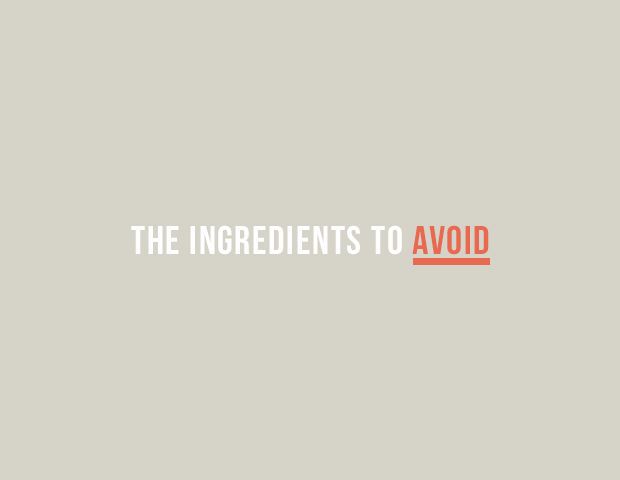Are you tired of dealing with redness, irritation, and discomfort regarding your skincare routine? If you have sensitive skin, you know that finding the right products and methods can be a daunting task. Sensitive skin requires special attention and care to avoid adverse reactions, but that doesn’t mean you must sacrifice effective skincare.
Learning about the best skincare tips for sensitive skin can help you achieve a healthy, glowing complexion without any unwanted side effects. This article will explore essential tips and tricks to help you create a personalized skincare routine tailored to your sensitive skin. So, if you’re ready to say goodbye to irritation and hello to beautiful, healthy skin, let’s get started!
Understanding Sensitive Skin

Before delving into skincare tips for sensitive skin, it’s essential to understand what sensitive skin is. Sensitive skin is a term used to describe skin that is easily irritated, red, and prone to allergic reactions. Various factors, including genetics, allergies, hormonal imbalances, and environmental factors, can cause sensitive skin.
Also Read. How to treat hyperpigmentation naturally?
Skincare Tips for Sensitive Skin
1. Choose Gentle Cleansers
Cleansing is essential in any skincare routine, but choosing a gentle cleanser that won’t strip your skin’s natural oils is crucial for sensitive skin. Look for cleaners that are fragrance-free, hypoallergenic, and free of harsh chemicals like sulfates and parabens. Avoid using hot water and washcloths, as they irritate your skin further.
2. Moisturize Regularly
Sensitive skin is often dry and prone to flakiness, so regular moisturizing is essential. Look for moisturizers that are designed for sensitive skin and free of fragrances, dyes, and other irritants. Ingredients like hyaluronic acid and ceramides can help hydrate and soothe sensitive skin.
3. Protect Your Skin from the Sun
Sensitive skin is particularly vulnerable to sun damage, leading to irritation and inflammation. Use a broad-spectrum sunscreen with an SPF of at least 30 days, even on cloudy days. Wear protective clothing like hats and long-sleeved shirts when you’re outside for extended periods.
4. Be Mindful of Exfoliation
Exfoliating can help remove dead skin cells and reveal brighter, smoother skin, but it can also be harsh on sensitive skin. Avoid using scrubs or exfoliating products with abrasive particles, as they can damage your skin’s protective barrier. Instead, look for gentle exfoliating acids like alpha-hydroxy acids (AHAs) or beta-hydroxy acids (BHAs) that can help slough off dead skin cells without irritating them.
5. Avoid Harsh Ingredients
Many skincare products contain harsh ingredients that can irritate sensitive skin, so it’s essential to read labels carefully. Avoid products that contain fragrances, dyes, alcohol, sulfates, and other irritants. Instead, look for products specifically formulated for sensitive skin containing gentle, non-irritating ingredients.
6. Patch Test New Products

Whenever you’re trying out a new skincare product, it’s essential to patch-test it first to ensure that it won’t cause an allergic reaction or irritation. Apply a small amount of the product to a small area of your skin and wait 24 hours to see if any redness, itching, or irritation develops.
7. Keep Your Hands Clean
Your hands come into contact with all sorts of dirt, bacteria, and other irritants throughout the day, so keeping them clean when touching your face is essential. Wash your hands thoroughly with soap and water before applying skincare products or touching your face.
8. Be Gentle When Cleansing
Sensitive skin can be easily irritated, so it’s important to be gentle when cleansing your face. Use your fingertips to massage your cleanser into your skin in circular motions, and avoid rubbing or pulling on your skin. Pat your skin dry with a soft towel instead of rubbing it.
9. Don’t Overdo It
More isn’t always better when it comes to skincare. Overusing or using too many products at once can overwhelm and irritate sensitive skin. Stick to a simple skincare routine with gentle, non-irritating products, and avoid using too many active ingredients at once. If you’re using a new product, start with a small amount and gradually increase the frequency of use if your skin tolerates it well.
10. Stay Hydrated
Drinking plenty of water can help keep your skin hydrated from the inside out, which is especially important for sensitive skin. Aim to drink at least eight glasses of water a day and limit your intake of caffeine and alcohol, which can dehydrate your skin.
11. Get Enough Sleep
Sleep is essential for maintaining healthy skin; lack of sleep can make sensitive skin more prone to irritation and inflammation. Aim to get at least seven to eight hours of sleep each night, and establish a relaxing bedtime routine to help you wind down before bed.
12. Consult a Dermatologist
If you’re struggling with sensitive skin or have a skin condition like rosacea or eczema, it’s essential to consult a dermatologist. They can help you develop a customized skincare routine and recommend products and treatments that are safe and effective for your skin type.
What is the best skincare routine for sensitive skin?

The best skincare routine for sensitive skin typically involves using gentle, non-irritating products and avoiding harsh ingredients that can irritate. Here are some tips for a good skincare routine for sensitive skin:
Cleanse:
Cleansing is essential to any skincare routine, including for sensitive skin. It is important to choose a gentle, non-irritating cleanser that does not contain harsh ingredients such as sulfates, alcohol, or fragrance. Opt for a cream or oil-based cleanser that gently removes dirt and makeup without stripping the skin of its natural oils. It is also important to avoid over-cleansing, as this can cause irritation and dryness.
Moisturize:
Sensitive skin requires moisturization to maintain a healthy barrier function and prevent dryness and irritation. Choose a moisturizer that is free of harsh ingredients such as fragrance and alcohol, and opt for a cream or lotion that is rich in emollients and humectants. Look for ingredients like hyaluronic acid, glycerin, and ceramides, which will help to hydrate and soothe the skin. Apply your moisturizer immediately after cleansing to lock in moisture.
Sun protection:
Sun protection is crucial for all skin types, but it is especially important for sensitive skin, which can be more prone to sunburn and other types of damage. Choose a sunscreen specifically formulated for sensitive skin and a mineral-based formula containing zinc oxide or titanium dioxide. These ingredients are less likely to irritate chemical sunscreens. Apply your sunscreen every day, even on cloudy days or when you are indoors.
Avoid harsh ingredients:
Sensitive skin is more susceptible to irritation from harsh ingredients such as fragrances, alcohol, and certain preservatives. Avoid products containing these ingredients and opt for those labeled as gentle and non-irritating. Also, be mindful of any new products you introduce into your routine and how your skin reacts to them.
Patch test:
Before trying a new product, it is important to patch-test it on a small area of skin first to ensure that it does not cause any adverse reactions. Apply a small amount of the product to the inside of your wrist or behind your ear and wait 24 hours. Do not use the product on your face if you experience redness, itching, or irritation.
What should I avoid if I have sensitive skin?

Sensitive skin is a common condition where the skin is easily irritated, prone to allergic reactions, and reacts quickly to environmental factors. If you have sensitive skin, it is essential to avoid certain products and ingredients that may exacerbate your condition. Here are some tips to help you avoid irritating your sensitive skin:
Harsh Cleansers:
Avoid harsh soaps, scrubs, and cleansers that contain alcohol, fragrance, or preservatives. Instead, use gentle, fragrance-free, and non-irritating products specifically formulated for sensitive skin.
Fragrances:
Avoid perfumes, colognes, and scented lotions, as they can trigger skin irritation and allergic reactions. Instead, opt for fragrance-free products.
Synthetic Dyes:
Synthetic dyes and colorants are often added to cosmetics and personal care products to enhance appearance. However, they can cause skin irritation and allergic reactions in people with sensitive skin. Look for products that are free from artificial colors.
Exfoliating Products:
Avoid using abrasive scrubs or products that contain harsh exfoliating agents, such as glycolic acid, salicylic acid, or retinoids. These ingredients can cause redness, irritation, and inflammation.
Hot Water:
Avoid using hot water for bathing or washing your face, as it can strip your skin of its natural oils and cause dryness and irritation. Instead, use lukewarm water.
Rough Textiles:
Avoid rough, scratchy, or tight-fitting clothes that can cause irritation and rashes. Instead, opt for soft, breathable fabrics like cotton.
Conclusion!
In conclusion, so, when it comes to skincare, remember that what works for one person’s skin might not work for another. Refrain from relying on the same skincare routine you use daily at work. Use skin testing to determine which product types work best for your skin. Find out what ingredients your products have so you can avoid irritating ingredients. Also, try to use a few different products and find out what combination is right for you.
FAQs!
How to do skincare for sensitive skin?
Taking care of sensitive skin requires a gentle and cautious approach. Here are some tips for a skincare routine that can help manage sensitive skin:
Know your triggers: Try to identify and avoid what irritates your skin. Common irritants include fragrance, alcohol, harsh detergents, and abrasive exfoliants.
Use gentle cleansers: Choose a mild, fragrance-free cleanser that doesn’t strip your skin’s natural oils. Avoid using hot water, which can further irritate the skin.
Moisturize regularly: Keep your skin hydrated with a gentle, fragrance-free moisturizer. Look for ingredients such as ceramides, hyaluronic acid, and glycerin that help to retain moisture.
Be careful with exfoliation: Avoid harsh scrubs and opt for a gentle chemical exfoliant, such as alpha-hydroxy acids (AHAs) or beta-hydroxy acids (BHAs) can help to remove dead skin cells without irritating the skin.
Patch test new products: Before trying a new product, patch test it on a small area of your skin to check for any adverse reactions.
Do and don’ts for sensitive skin?
Do’s:
Use products specifically designed for sensitive skin
Test new products on a small patch of skin before using them all over
Keep your skincare routine simple and avoid overusing products
Use lukewarm water instead of hot water when cleansing your skin
Wear protective clothing and hats when exposed to the sun
Don’ts:
Use products with harsh or abrasive ingredients
Use hot water when washing your face or showering
Use scrubs or exfoliants that can cause irritation
Touch your face with dirty hands
Overuse skincare products, as this can lead to irritation and inflammation
What is bad for sensitive skin?
Some bad ingredients for sensitive skin include fragrances, alcohol, retinoids, alpha-hydroxy acids, and sulfates. These ingredients can cause irritation and inflammation in sensitive skin. It’s important to read ingredient labels carefully and choose products specifically designed for sensitive skin.
